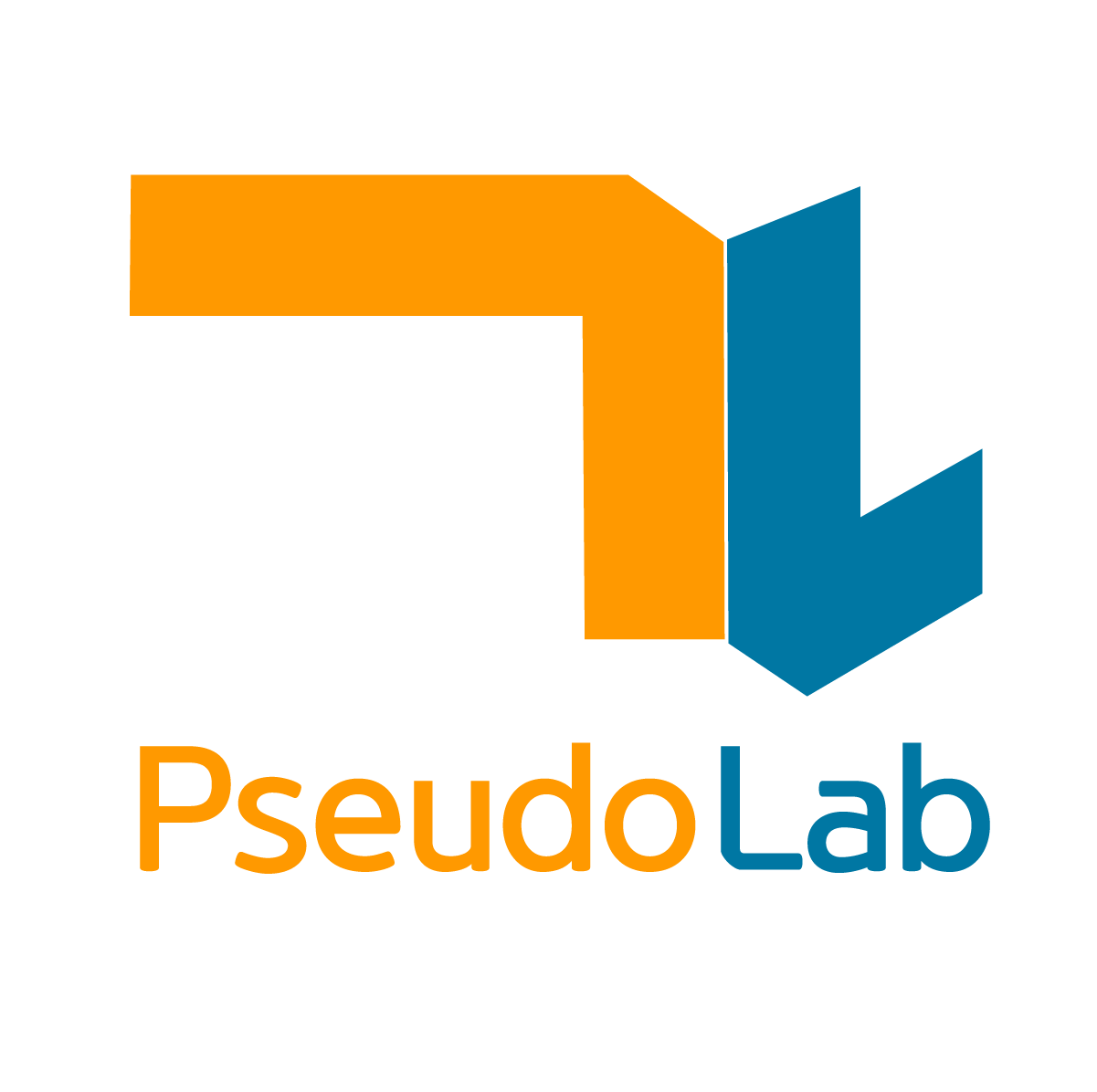Information
Title: DreaMoving: A Human Video Generation Framework based on Diffusion Models
Reference
Code: Official
Project Page : https://dreamoving.github.io/dreamoving/
Author: Geonhak Song
Last updated on {March. 13, 2024}
DreaMoving#
Abstract#
고품질 customized human video 생성을 위해 제어가능한 diffusion 기반 video generation framework인 DreaMoving 제안
target identity와 posture sequence가 주어졌을 때, target identity moving이나 dancing video 생성이 가능하다.
추가 제안 모듈 : motion-controlling을 위한 Video ControlNet & identity preserving을 위한 Content Guider
1. Introduction#
T2V의 진전에도 인간 중심 기반 생성에는 어려움을 겪는 중.
open-source human dance video dataset의 부족, text 묘사의 어려움으로 인해 frame간 일관성, 긴 길이, 다양성을 포함한 비디오 생성에 어려움을 겪는다.
personalization과 controllability 의 어려움 또한 존재
구조적 제어를 위한 ControlNet, appearance 제어를 위한 Dreambooth, LoRA
그러나 이 기술들은 정확한 제어가 어렵고 hyperparameter tuning 요소가 존재 & 추가 계산 부담
이에 새로운 방법론인 DreaMoving 제안
2. Architecture#

Fig. 641 Figure 1. The overview of DreaMoving#
LDM 기반 모델을 기반으로 3가지 주요 network로 구성
U-Net, Video ControlNet, Content Guider
AnimateDiff에서 영감을 받아 U-Net 각 block 이후 motion block을 추가
Plug-in : motion-controlling을 위한 Video ControlNet & identity preserving을 위한 Content Guider
2.1 Data Collection and Preprocessing#
인터넷에서 human dance video 1000의 고품질 영상으로 훈련
temporal module 훈련은 변이나 특별한 효과 없는 연속적 frame이 필요하기 때문에 clip video로 split하여 6000개의 짧은 비디오를 획득한다.(8~10s)
text description을 위해서 Minigpt-v2(https://minigpt-v2.github.io/)를 video-captioner로 사용
“[grounding] describe this frame in a detailed manner”의 명령으로 획득
subject와 background 내용에 대해 정확히 묘사
2.2 Motion Block#
temporal consistency와 motion fidelity 향상을 위해서 U-Net과 ControlNet를 motion block으로 통합.
motion block은 AnimateDiff로 확장. temporal sequence length는 64로 확장
초기화 : AnimateDiff (mm_sd_v15.ckpt)
개인 인물 dance video로 finetuning
2.3 Content Guider#
Content Guider는 인물의 appearance와 배경을 포함한 생성된 video의 내용을 제어하기 위해 고안됨.
가장 간단한 방법은 text prompt이지만, 개인화된 인물 외관 묘사가 어렵다.
IP-Adapter에 영감을 받아 image prompt를 활용해 인물 외관에 대한 guidance를 주고 배경에 대해서는 text prompt 사용
얼굴 이미지는 image encoder를 통해 encode
text feature & 인물 외관 feature는 마지막 content embedding에 concat된 후 cross-attention에 보냄
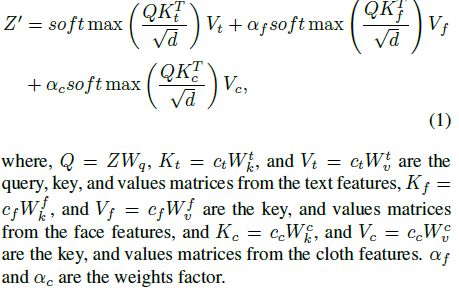
Fig. 642 Equation 1 Content Guider cross attentino output given query, text, face, cloth features#
\(Z\) : query features
\(c_t\) : text features / \(c_f\) : face features / \(c_c\) : cloth features
\(Z^\prime\) : cross-attention output
2.4 Model Training#
2.4.1 Content Guider Training
Base Model : SD v1.5 기반
Image Encoder : OpenCLIP ViT-H14
reference face identity 보존을 위해 Arcface를 통해 얼굴 상관 feature 추출.
LAION-2B에서 human data 수집
훈련 : 512x512 random crop & resize
GPU : 8 V100, 100k steps, 16 batch size/GPU 1장
Optimizer : AdamW
learning rate : 1e-4, decay 1e-2
2.4.2 Long-Frame Pretraining
WebVid-10M validation set (5k video clips)에서 motion module의 sequence length를 16에서 64로 확장하기 위한 training stage 수행
WebVid-10M validation set (5k video clips) : 평균 18초, 총 13000 시간
U-Net motion module만 훈련하고 나머지는 freeze
ControlNet이나 image guidance 사용 안 함.
learning rate : 1e-4
resolution : 256x256 resize & center crop
batch size 1, 10k steps 이후 훈련 종료
2.4.3 Video ControlNet Training
long-frame pretraining 이후, Video ControlNet 훈련 진행.
U-Net 고정 & **Video ControlNet의 (U-Net block과 motion block)**은 unfreeze
수집한 6k human dance video data 훈련
DWPose나 ZoeDepth를 통한 human pose 또는 depth를 추출.
learning rate : 1e-4
resolution : 352x352
batch size 1, 25k steps 이후 훈련 종료
2.4.4 Expression Fine-Tuning
사람 표현을 더 낫게하기 위해 Video ControlNet을 포함한 U-Net의 motion block 구조에서 6k human dancing video data로 추가 fine-tuning
U-Net motion block weight만 update
learning rate : 5e-5
resolution : 512x512
batch size 1, 20k steps 이후 훈련 종료
2.5 Model Inference#
입력 : text prompt, reference image, pose/depth sequence
Video ControlNet control scale : 1 (pose/depth에서만)
multi-controlnet을 통해 pose & depth 동시 사용 가능
Eq 1의 face/body guidance strength : \(\alpha_f,\alpha_c\)는 적응하도록
text prompt만 사용할 때 \(\alpha_f=\alpha_c=0\)
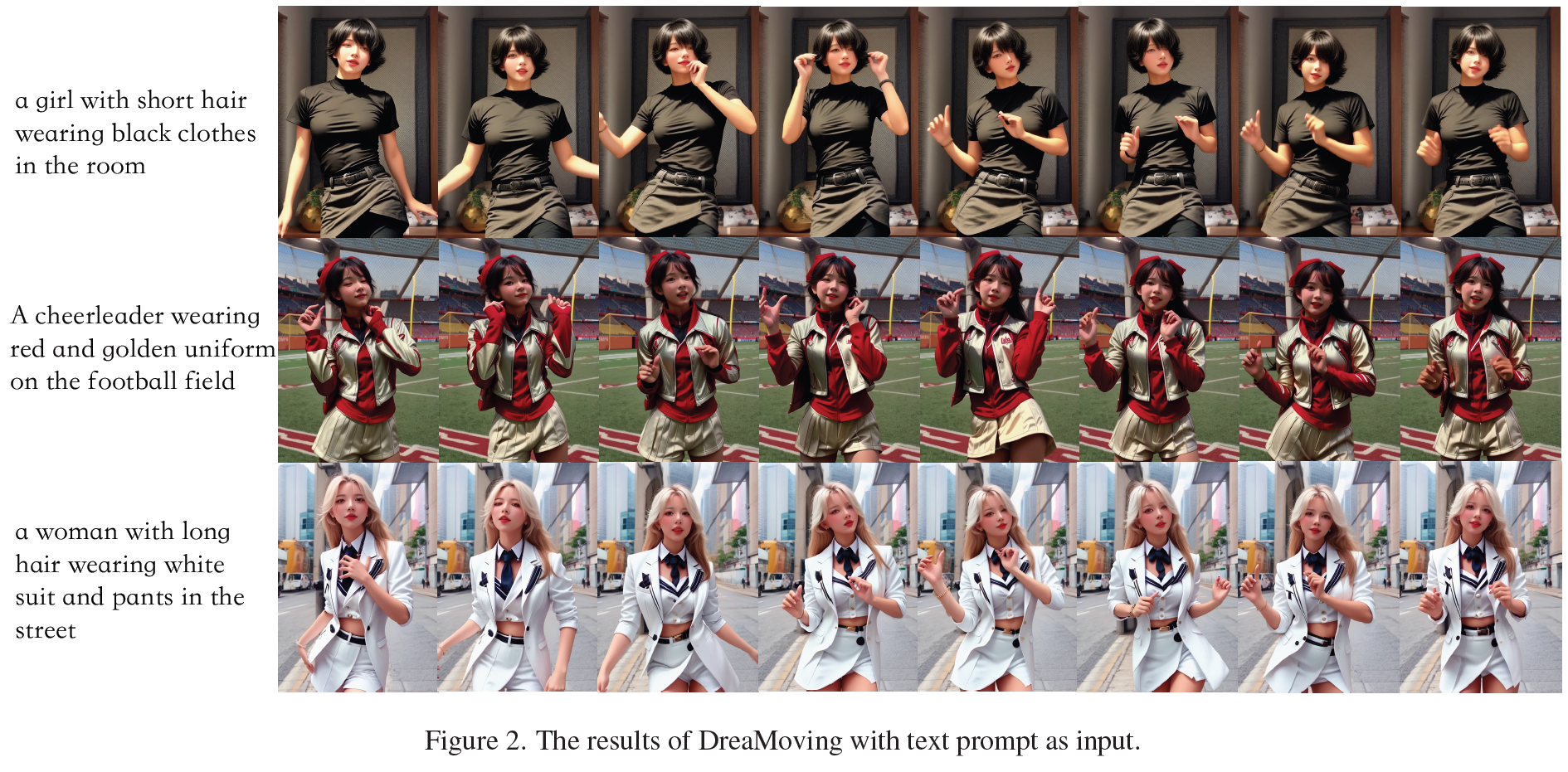
Fig. 643 Figure 2. The results of DreaMoving with text prompt as input#
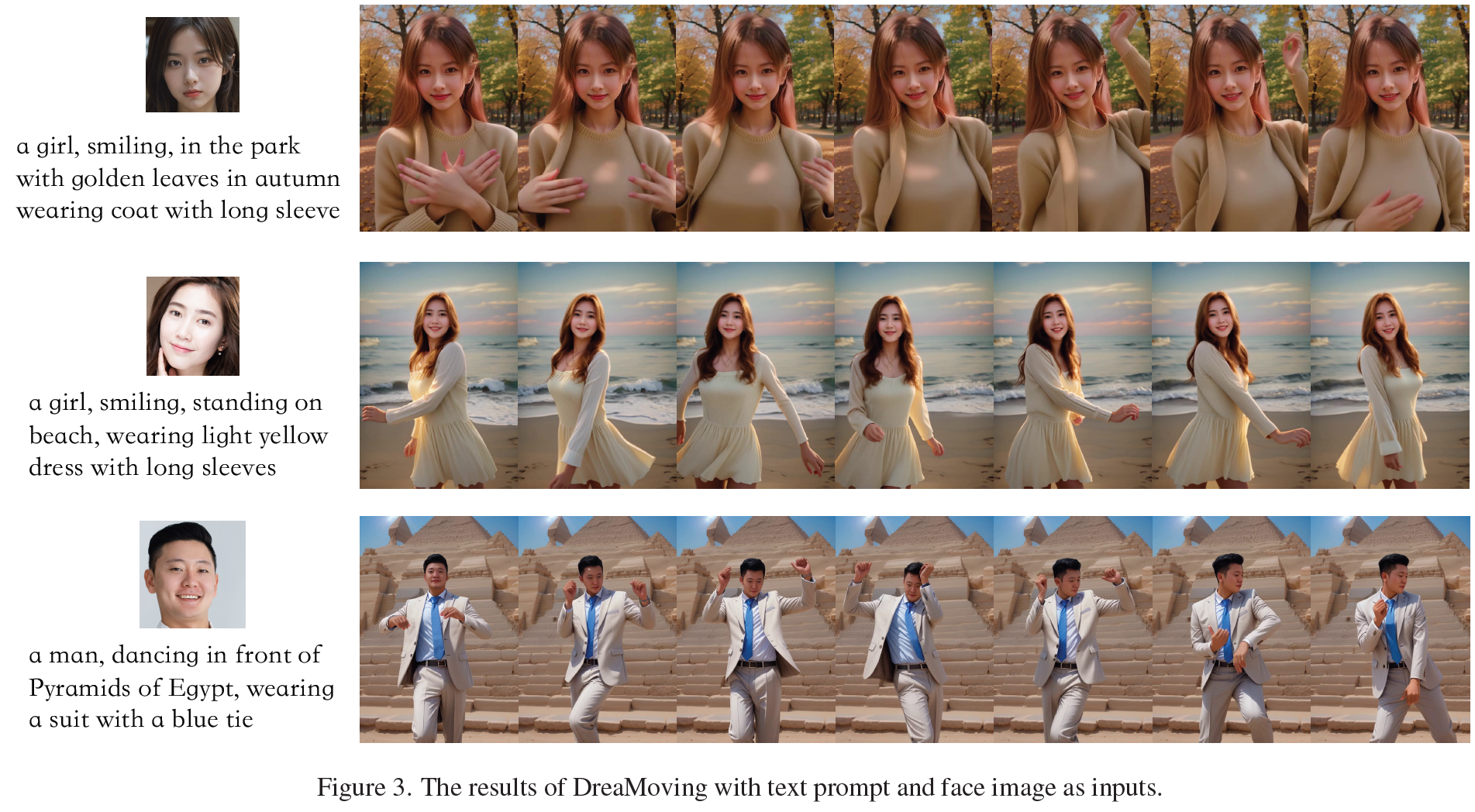
Fig. 644 Figure 3. The results of DreaMoving with text prompt and face image as inputs#
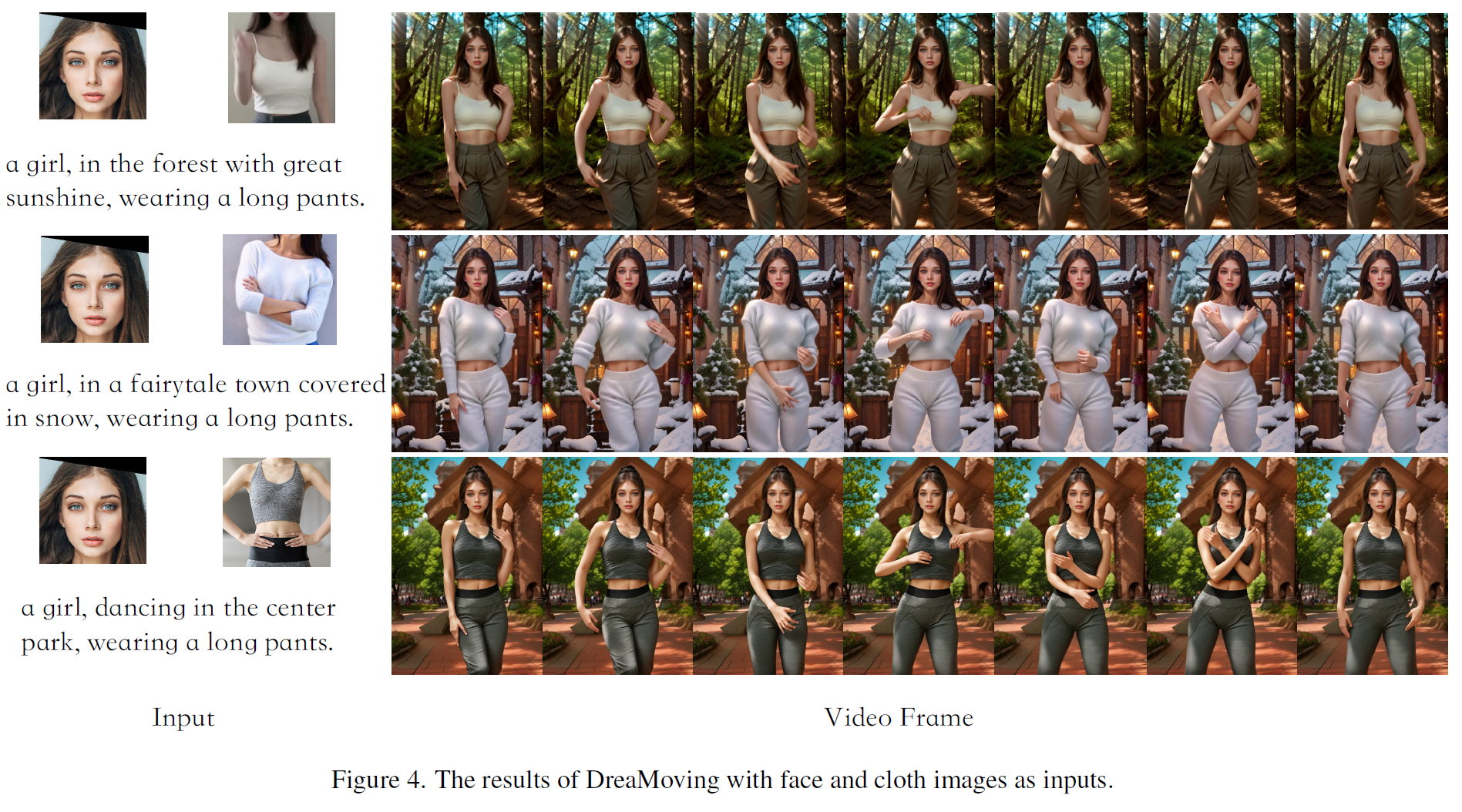
Fig. 645 Figure 4. The results of DreaMoving with face and cloth images as inputs#
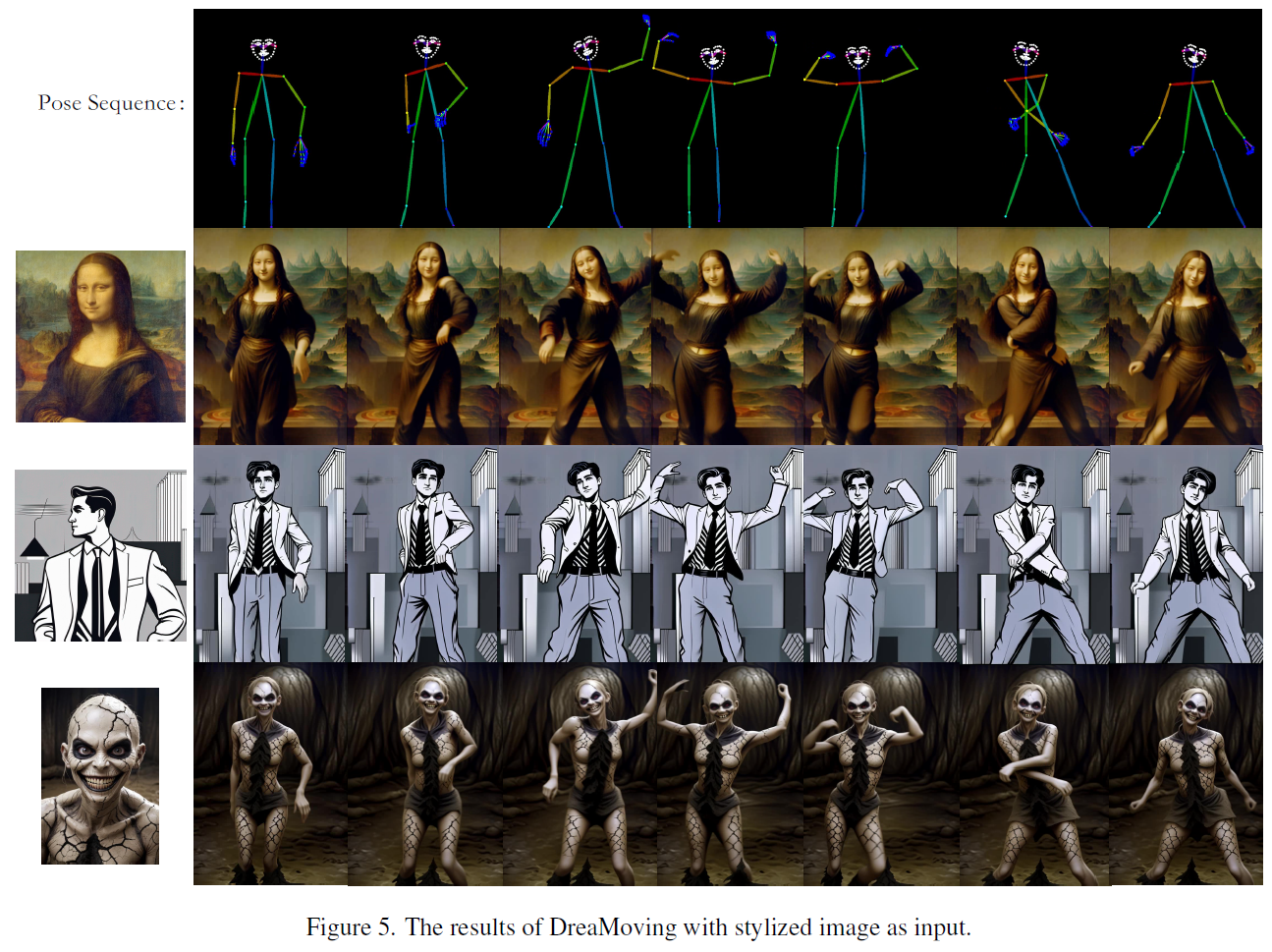
Fig. 646 Figure 5. The results of DreaMoving with stylized image as input#
